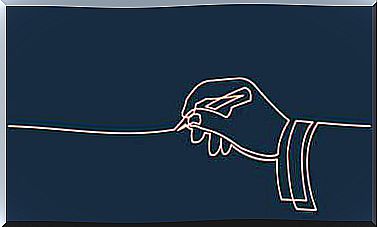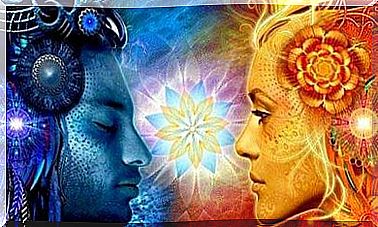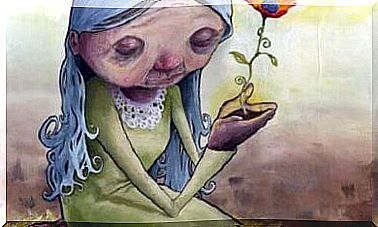Addiction Or Mental Disorder, What Was Before?

The cause of substance use is usually attributed to different factors. Among them, the ease of access to drugs, certain personality types, social learning processes … However, there is another possible cause: a mental disorder. We also know that drug use can increase the risk of certain mental disorders. So was it addiction or mental disorder before?
Hawkins and Weiss developed the self-medication hypothesis. They tried to explain substance use in people with mental disorders as a way of controlling and self-managing the disorder. On what are these authors based to elaborate their hypothesis? What examples can we find that support the self-medication hypothesis? Let us respond.

Mental disorder as a cause of addiction: hypothesis of self-medication
This hypothesis arises from the search for an explanation about why there are people who consume substances that do not develop dependence. In addition to intrinsic factors (such as personality, or vulnerability) and external factors (such as family models, or the social environment), there must be other neurobiological factors capable of explaining why some people develop dependence and others do not.
The self-medication hypothesis arises to explain this. Addictions are the result of a mental disorder that forces the patient to consume certain substances in order to treat their pathology. When the symptoms are alleviated, the consumption behavior is maintained by negative reinforcement.
Within the hypothesis of self-medication, there are four complementary lines of work that explain the relationship between mental health and addictions:
First line
This line explains that a person with a dysfunction at the central nervous system level would cause very annoying psycho-organic symptoms that would reduce their quality of life. If this person comes into contact with a substance capable of improving their symptoms, dependence is likely to develop fairly quickly.
If the mental disorder is not treated – either with psychological therapy, with medication, or with a combination of both – all dedicated addiction treatments are destined to fail. This occurs because the person will tend to seek treatment for their mental disorder (drugs, in this case).
Second line
Mental disorders are caused by a vulnerability to consume certain substances. In this way, the use of these substances would be the one that generates alterations in the psychic and cognitive functions, serious and permanent, in the individual.
If pharmacological or psychological treatments do not solve the problem, this person is doomed to maintain consumption as a way to restore their quality of life.
Third line: mental disorder as a cause of addiction
This line proposes as a determinant of the initiation and maintenance of consumption a mental disorder prior to the initiation of consumption. This proposal was made from the observation that certain addictive substances have antipsychotic, antidepressant and anxiolytic effects.
To understand this line of work, let’s put some examples. Cocaine use is common in people with undiagnosed ADHD or whose treatment is not effective.
Its stimulating effects correct the alterations produced by ADHD. Another example, along the same lines, would be people who use cannabis or alcohol as an anxiolytic.
Fourth line: addiction as the cause of mental disorder
Opposed to the previous line, this one tells us that mental disorders that predispose to the use of certain substances are not the origin of addiction, but rather the result. That is, they explain the case of people without previous mental disorders, but with special vulnerability to the effect of drugs. As a consequence of its consumption, they would end up developing serious mental disorders that are difficult to treat.
The addiction is maintained because, once the symptoms of the disorder develop, substances are used as their treatment. An example of this could be cannabine psychosis or the first psychotic outbreaks due to cannabis use, the recent relationship between cannabis and schizophrenia.

A very diffuse line that makes treatment and prevention difficult
All explanatory theories of addiction or substance use, alone, fall short. There are countless reasons and causes, and all of them should be considered when treating substance use disorders and preventing substance use.
There are many interventions to prevent use, based on some of the predisposing factors for the development of an addiction. However, overlooking less visible and less obvious causes, such as hidden or undiagnosed mental disorders, makes both prevention of use and its treatment difficult.
Perhaps providing education about mental disorders and their symptoms, and how drugs work on them, along with the destigmatization of mental illness, could lead to more attention being paid to symptoms and help to remedy them.
In this way, receiving adequate treatment, the use of substances to treat symptoms could be prevented or reduced.
In the case of a mental disorder and an addiction coexisting, it is important to treat the addiction first, although, where possible, an integrated treatment will be ideal. Since we have seen that, if we treat the addiction, but not the mental disorder, it is very likely that the addiction will be reinstated.
In the same way, treating only the mental disorder, but not intervening on the use disorder, would only end with half the problem, since once the addiction is established, it will not disappear by itself when solving the mental disorder.









